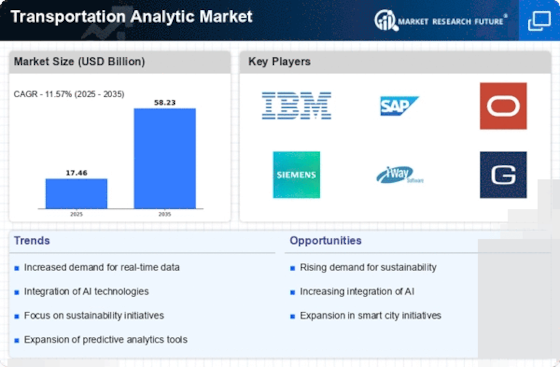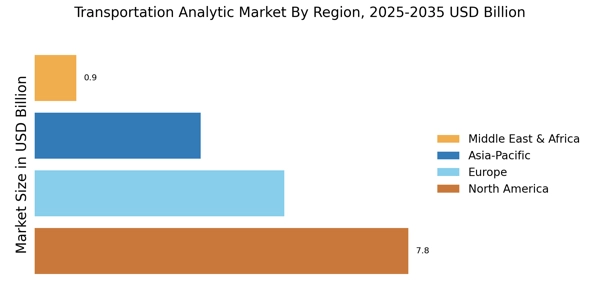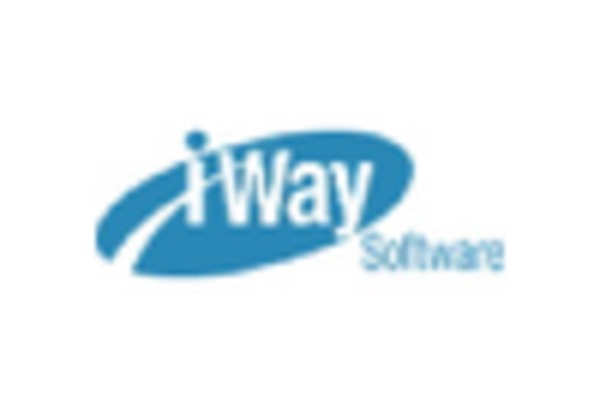Advancements in Technology
Technological advancements are significantly influencing the Transportation Analytic Market. The proliferation of Internet of Things (IoT) devices and sensors has enabled the collection of vast amounts of data from various transportation modes. This data can be analyzed to identify patterns, optimize routes, and enhance safety measures. Furthermore, the integration of artificial intelligence and machine learning algorithms allows for predictive analytics, which can forecast traffic patterns and demand fluctuations. As technology continues to evolve, the Transportation Analytic Market is poised for substantial growth, with organizations increasingly adopting these innovative solutions to improve operational efficiency.
Government Initiatives and Regulations
Government initiatives and regulations play a pivotal role in shaping the Transportation Analytic Market. Various governments are implementing policies aimed at improving transportation infrastructure and promoting the use of analytics for better resource allocation. For instance, funding for smart transportation systems is on the rise, with several countries allocating substantial budgets to enhance data collection and analysis capabilities. This trend is expected to foster innovation within the industry, as public sector investments encourage private sector participation. Consequently, the Transportation Analytic Market is likely to benefit from increased collaboration between government entities and analytics providers.
Increased Focus on Safety and Security
Safety and security concerns are driving the Transportation Analytic Market to adopt more sophisticated analytics solutions. With rising incidents of accidents and security threats, stakeholders are prioritizing the implementation of analytics to enhance safety measures. By leveraging data analytics, organizations can identify high-risk areas, monitor compliance with safety regulations, and develop proactive strategies to mitigate risks. The market for safety analytics is expected to expand as organizations seek to protect assets and ensure the safety of passengers. This heightened focus on safety is likely to propel the Transportation Analytic Market to new heights.
Growing Urbanization and Mobility Challenges
The challenges posed by growing urbanization are significantly impacting the Transportation Analytic Market. As urban populations continue to swell, cities face increasing congestion and mobility issues. Transportation analytics provides valuable insights into traffic patterns, public transportation usage, and infrastructure needs. By analyzing this data, city planners and transportation agencies can develop more effective strategies to address these challenges. The demand for analytics solutions that can facilitate smarter urban mobility is expected to rise, thereby driving growth in the Transportation Analytic Market. This trend underscores the importance of data in creating sustainable urban transportation systems.
Rising Demand for Data-Driven Decision Making
The Transportation Analytic Market experiences a notable surge in demand for data-driven decision making. Organizations increasingly recognize the value of analytics in optimizing operations, enhancing efficiency, and improving customer satisfaction. According to recent statistics, the market for transportation analytics is projected to grow at a compound annual growth rate of approximately 15% over the next five years. This growth is driven by the need for real-time insights into transportation networks, enabling stakeholders to make informed decisions. As businesses strive to remain competitive, the integration of advanced analytics tools becomes essential, thereby propelling the Transportation Analytic Market forward.

















